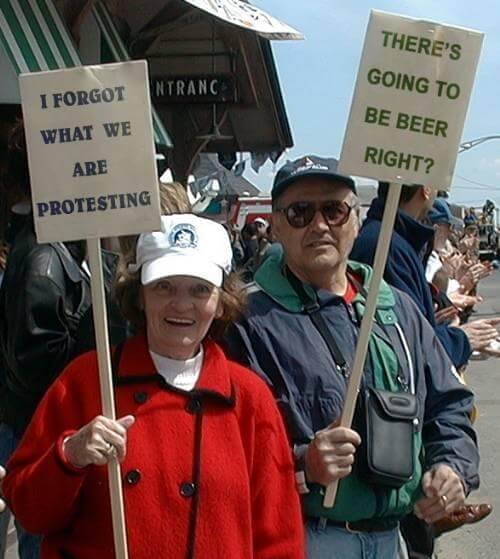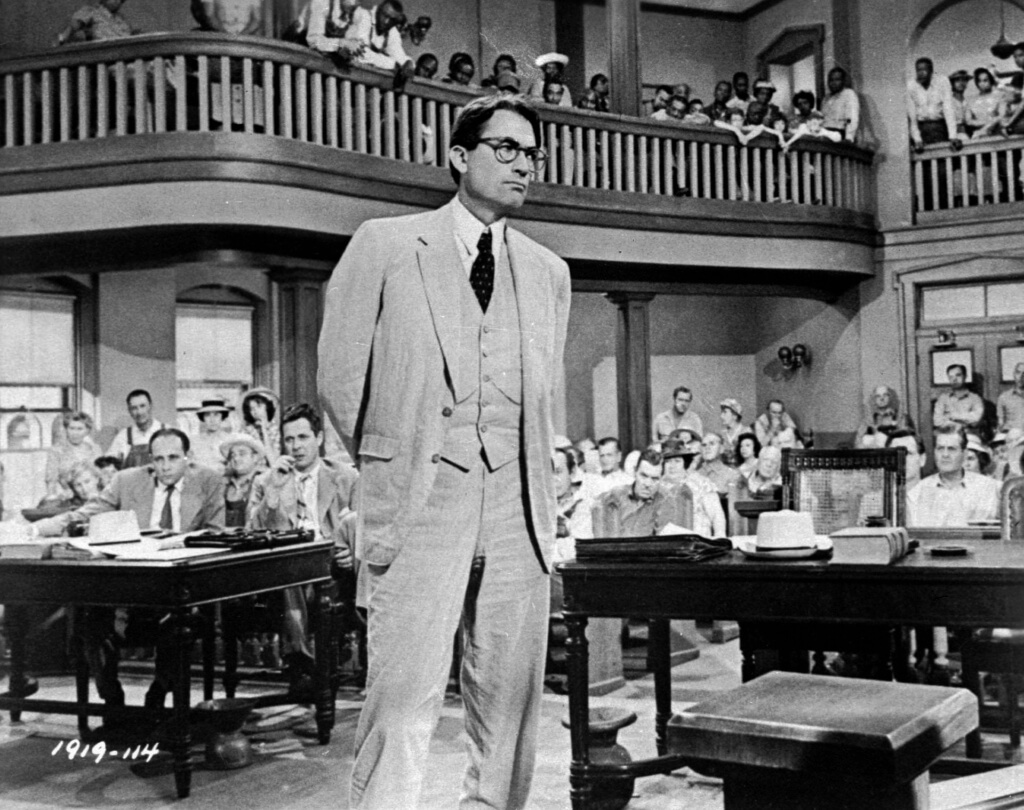One thing lawyers know is everything. We’re the smartest people you’ll ever meet and have no problem letting you know it. Sure, this may result from insecurity, isn’t true, makes us dickheads, and we end up dying alone but it’s totally worth it to say, “I’M A LAWYER!”
Sadly, a lot of that is true, particularly the dickhead part. I’m a dickhead, though it really has nothing to do with being a lawyer and more just growing up as an asshole. I started law school almost ten years ago, so essentially 1/3 of my life has been dedicated to nothing but the law (we pretend this is true – we all know I fuck around a lot). I’ve learned; not everything but enough. I think I’ve especially learned enough to give some of you would be lawyers some advice. That’s what I’m going to do.
Giving advice is a very common trait for lawyers. Doctors frequently get annoyed at everyone saying, “Can you take a look at this?” Lawyers don’t have this problem. We’re wired to jump and say, “Oh, totally. OK. Let me take you back to the Magna Carta to set the stage for why your speeding ticket is invalid.” An hour later and said lawyer exhales.
In my experience, particularly in law school, there were a few types of people.
- Those who just wanted to make money and be successful and step over any and everyone on their way to the top.
- I hated and still hate these people. Some of it is my natural personality isn’t one of Win At All Costs but I’m also the son of a lawyer and actually kinda sorta maybe truly do believe there’s something noble about the profession.
- To them “lawyer=successful” and all they wanted was success.
- Those who want to use the law to change the world.
- These people aren’t AS bad as group one but I still don’t like them. They’re people who have figured out what they believe and how the world should be and intentionally use the law to manipulate things. I don’t like that.
- In fact: fuck them. Politicians should be the ones doing this, not lawyers.

- People who love the law and see it as almost sacred.
- That’s me. (I know this because I’m not successful nor do I advocate for anything.)(It also makes me seem more honorable to say I’m from the Good Group.) My opinion on things doesn’t matter, all that matters is best serving the client. Molest a kid? You still have the right for someone to state your case and defend you. My view when handling clients is simple: what would they do if they had my knowledge? Then I try to stay within the legal and ethical boundaries that exist.
OK. That’s a lot of words and no advice yet. I’m basically speaking to the third group because group one doesn’t care about being good at law, they care about being good at selling themselves as good at law; group two doesn’t care about the law at all and only went to law school so they could manipulate the world to their wishes – which is the opposite of representing a client.
So, to you kids out there who want to be well-rounded, what do you do? Study a lot? No. You’ll learn a lot of stuff in law school but the primary purpose of those three years is to rewire your brain. Doctors aren’t necessarily smart, they just know a lot. “Symptom A + B = Diagnosis C.” Most jobs are like this. The law seems like it is but it’s really much closer to being an artist. Your job is to be a creative writer/creative thinker. “OK. This is what the laws says. These are the facts I have. How do I get them to fit?” Lawyers are basically con artists in that sense; or, in a more positive view, what you’re trying to do is make things clear – you get rid of the noise and focus the judge/ jury on the truth of what’s happening. It’s one of those two and then somewhere in between.
But how do you get good at this? Again, studying won’t help (OK, it will). It helps some with the rewiring part but the law – like most things – is learned far more by stepping into the fire. I was lucky. I grew up the son of a lawyer and so from the day I was born I was being taught to think like a lawyer. My brother was too, he simply didn’t go to law school so those skills weren’t sharpened (note: he has a cool job, he’s better at what he does than I am at anything, is happier, more successful … and taller). But odds are against you having a father who is a lawyer, let alone one like mine who really loved the learning and theory of it all.
Mike, just do some bullet point advice already, k?
1. APPRENTICE
Well, if you don’t have an angry drunk of a father who happens to be good at the law handy, find one. But not at a law firm or even a government agency. Find a local guy in town, one just making it on his own, and see if you can strike up a relationship. Lots of schools have mentor ship programs and if you can find a half-way decent dude that’s golden. Personally, I think legal training should be 18 months, at most, book learning, and then 18-24 months of apprenticeship. That’s how it was done back in the day and it just makes sense. The number of times I’d talk to my dad and he’d say, “Well… I mean, I guess that’s right but here’s how it works in the real world” is incredible.
And try to diversify a bit. Knowing everything about one area and nothing about another isn’t good. Kind of like how athletes cross train so too does cross practicing help open your mind.

2. DOCUMENT REVIEW
For a lot of young lawyers (and old ones, and not old or young) document review is simply a way to pay bills. What happens is some giant law firm that’s run by people from Group One get a mega giant case (think tobacco company lawsuit big). These cases have hundreds of thousands, if not millions, of documents that need to be looked at. Sometimes the documents are important but mostly they’re looking for a specific type: is it attorney-client privileged, did he specifically mention Fact Z or Theory X, and so on. Now, this firm has a bunch of it’s own lawyers it bills out at like $800/hr but they don’t have a ton of them. So, they hire outside lawyers to do this work for them on a preliminary basis. They pay that lawyer like $30/hr, bill the client $100/hr, and free up their $800/hr guys do to non-grunt work.
This isn’t glamorous work. But it is relatively stress free and more importantly you get used to evaluating things quickly. It is generally a mildly academic exercise but one which still helps you start to think in terms of being a “real world lawyer.” Instead of some by the book definition of what is relevant discovery, you start thinking, “Hmm, if I was suing someone, would I want this information?”
3. DRAFT ONE WILL, DO ONE DIVORCE, AND DO ONE CHILD CUSTODY CASE
These are the things you’ll come across the (second) most in your life. Even if you don’t practice these areas – and family law can be messy as shit – they’re the kinds of issues your friends and family will encounter. You’ll want to be able to give them advice, on a basic level at least, and know enough that if they hire a specialist in the area you can tell if the guy is legit or just trying to milk them for money. You don’t even have to actually do any of these, but take the time to do one of each just so you become familiar with that area of law on a real level. (If you’re lucky like me, you even get to draft your own divorce!)
4. FIGURE OUT THE TRAFFIC LAWS
Like above, the one other thing your family and friends will most likely need help with is a speeding ticket. DUIs are a different story, because I’ve found that to be a scam where it’s just one set of former prosecutors turned defense attorneys who know the current prosecutors and an “old boys club” mentality rules. But run of the mill speeding tickets? You can walk in and five minutes later walk out of court and your family will think you’re a god. Will you have done a ton? Not really. But just having a basic understanding of the laws will half the time cause the prosecutor to say, “Eh, this isn’t worth the time and effort from me, I’ll dismiss it.”
5. DO COVERAGE
Coverage is a fancy (not really that fancy, I suppose) way of saying, “Stand in for another lawyer before a judge.” Law schools are absolutely HORRIBLE at preparing you for court. They’ll teach you all of the rules of evidence and what is and isn’t hearsay and how to do a big fancy closing statement – all things you’ll probably never do, even if you’re a trial attorney. Do you know how long it takes for a civil lawsuit to get to trial? YEARS and YEARS! I took over a case from my father after he passed away that was filed in 2010 and we almost went to trial in 2015. FIVE f’n YEARS!

What you will do is stand before a judge and say, “Yeah, we’re at this stage in discovery. We need more time. Yada yada.” Just doing that a bunch will give you a general feeling for how a courtroom works. You’ll learn skills like: filling out an order. Trust me, that’s a really good skill to have because if you’re smart, you write the order juuuuuuuust right.
You’ll also just feel more at ease inside the court room, learn that the judge’s clerk is the most important person in said room, and learn that judges do not have the slightest clue what your case is about and you have to basically “refresh” their memory every time you stand before them.
Plus, and this is a neat side benefit, you start to understand that being a lawyer is a special job. You get to sit in seats other people don’t, you get to walk up to the judge when others don’t, you’re the guy in a suit and not the random idiot in a tracksuit and flip flops. (Though I did wear flip flops to court once, because I forgot my shoes, but I knew if I stood close enough to the bench no one would see.)
6. TRUST YOUR RESEARCH; DON’T TRUST YOUR KNOWLEDGE
I truly believe that law schools should mandate A LOT more legal research training than they do currently. A full third of your time in law school should be devoted to becoming a great researcher because you know nothing. Nothing. No matter how basic the case is before me, I still re-read the statutes and caselaw on the matter before drafting a single page. I may think I know the ins and outs of assault and battery, and even if I’ve done a dozen cases just like the one in front of me, I still need to double check in case some judge recently ruled in a way that changes things.
On the other hand, you have to be able to trust your prior research. Cases take time and drafting briefs can take days and weeks. I’ll spend a month on 6 pages sometimes and that’s when you need to trust what you did before. There’s a real temptation to doubt what you’d researched before. “Did that case really say that? Let me check.” And you’ll spend all your time redoing things. Not that you shouldn’t be thorough but at a certain point you have to say, “OK. A month ago, I wasn’t stupid. If that’s the caselaw I found, I have to trust it was right.”
Living life as a lawyer
I might as well give a little practical advice too, but this is more along the lines of how to live as a lawyer than how to be a good one.
7. Under Pressure
Congratulations, you are now the keeper of everyone’s secrets! Doctors and their patients have rights to secrets but only to a certain point, same with priests and sinners like me. Lawyers? Our right is almost absolute – and in the cases where a lawyer is obligated to break confidentiality we will half the time still refuse. It actually is an incredibly important responsibility.
You’ll end up knowing who killed someone (probably not but you never know), the real truth about a couple’s finances, and so on. And you don’t get to tell anyone. You can’t talk to other lawyers, or a priest, or a counselor (as far as I know). People will end up trusting you with the most intimate knowledge of their lives – and they have to because that’s the only way to do the most good. If a friend of mine wants a divorce, I need to know exactly how much they make, what’s in savings, what’s here, there, did they hit their wife/husband, etc…
This may not sound like much at first but it will grow. Especially because you will end up helping out family and then you have to keep the Family Secrets. Not just that, but it’s not even like they all necessarily know what secrets you carry. Did you aunt want you to draft a will and not include two of your three cousins? Sorry, you can’t say anything and when she dies and they see you drafted it guess who they’ll be pissed at?
You will keep secrets, make sacrifices, and no one will ever know. (#Hero)

8. You Aren’t Smarter Than Them
I get this one a lot, and some of it is my own fault. I think people think I’m smarter than I am but it’s really more a function of having been trained at explaining my perspective and seeing someone else’s point of view well enough to not get lead down an “argument hole.” Someone once said to me, “No, I’m not answering that because if I do then that’ll prove you’re right on Position A and I know what you’re doing.” Then they get frustrated and you get frustrated because all you can think is, “But … I was right. Or at least not wrong.” What people perceive as you thinking you know it all is really just you maybe being better at expressing what you know – and at seeing when times arise where you don’t know something so you avoid it.
And you’ll also learn to disassociate yourself from the arguments so things aren’t personal. Think abortion is murder? Think a woman has a right to do as she pleases? I can argue both sides right now and it doesn’t bother me one bit. In fact, the older I get the less I care what someone believes so much as why they believe it.
Moreover, there’s a certain degree of certainty you’ll develop when you speak because you have to have that. Do you want a doctor who says, “Well, I mean, you probably have a broken arm and I think I can fix it” or one who says, “OK, Here’s what’s wrong, here’s how I fix it. GO!”
It’s funny because maybe the number one phrase for a lawyer is “it depends” when people ask you a question – because all the facts are important – but you will still be expected to know what you’re talking about. You’ll always have a thousand answers at your fingertips.
(Sidebar: (bad joke) when writing, always write with certainty. It isn’t “Thus, it is my opinion that the ice caused the slip and the store owner is probably responsible” it is “The ice caused the slip and the store owner is responsible.” This may seem obvious but it isn’t. I have to do a lot of rewriting to remove that kind of language because we’re taught as kids that we’re expressing our opinions and not stating facts but the job is to make it sound like your opinion is an absolute fact.)

9. Have non-lawyer friends
Knowing lawyers is good for professional reasons and personal reasons. You can talk to them about the feelings and pressures and they’ll “get it” because they experience it too. But echo chambers are what cause lawyers to see themselves as more important and intelligent than they really are. I’m grateful that most of the people I know and talk to aren’t lawyers. The #1 compliment I receive, almost always at jiu-jitsu, is, “Wow, I didn’t know you were a lawyer.” I’m so happy to hear that because it means on some basic level I’m not a pompous asshole all of the time. Just most of it.
Oh, and no one will want to watch a TV show or movie with you if it involves law. You won’t be able to help it but you will find yourself muttering, “That’s not right. You can’t do that. Objection. WTF? That’s not a law.” (Everyone loves “How To Get Away With Murder” and I made it 15 minutes before I couldn’t take it anymore.)
That’s all I have, kids. Don’t worry, I know you’re not going to listen to any of this: you’re lawyers in training, you already know everything.






